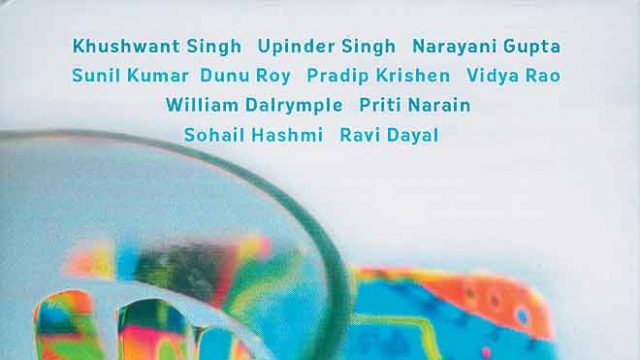When the lecture series (that makes up this book) was held in the IIC to mark New Delhi’s 75th anniversary, it was difficult to find a spare seat. It has taken a while for those memorable lectures to be edited into a volume that brings together some of Delhi’s best-known chroniclers and historians. Khushwant Singh, New Delhi’s iconic aboriginal, leads this august assembly by far. His highly personal history (‘My Father, the Builder’), with his special brand of wit and sharpness, is vintage Khushwant. The other essays with their subtle whiff of academic gravity never quite celebrate the city as these rambunctious recollections.
It is possible that the editor had no idea that the state of the city at its launch would hardly raise a cheer. But that apart, for a book that purports to celebrate the city, most essays read like a requiem for a Delhi now lost or rapidly vanishing. Dunu Roy, Narayani Gupta, Sohail Hashmi and Ravi Dayal point out how the original imperial and cultural coordinates of the city have shifted over time. Their points are made with scholarship, humour or despair but each writer finds little to celebrate Delhi as she is now.
There is a puzzling dichotomy here: their pride in the city is held fastidiously aloof from the common man’s. In fact, they take pride in the fact that ‘their’ city (of leafy lanes, dhobis thwacking clothes in the Jamuna, picnics and tiffin carriers, tongas and steam engines) is really now a city of the past. Small town Delhi versus malltown NCR can only be tackled with weapons that are stronger than romantic elegies. Khushwant makes this leap because his love of the city is larger than a love of his own borough, even though he never moves out of it.
There are other essays that bring new cause for celebration—such as Upinder Singh’s ‘Discovering the Ancient in Modern Delhi’ and Pradip Krishen’s essay on the trees of Delhi. Sunil Kumar’s brilliant narrative on two Sufi shrines of Delhi and their eventual metamorphosis brings Delhi’s spiritual heritage right up to date. Vidya Rao on ‘The Dilli Gharana’ and Priti Narain on ‘Dilli ka Asli Khana’ celebrate the music and the cuisine of Delhi, both happily still here.
While it is true that no single volume can capture its spirit completely, it is also a fact that often what works well as a lecture fails to arouse the same response in print. Several anthologies on Delhi have tried to capture its spirit: yet this city, warts and all, defies the efforts of all its editors and still awaits its best anthology.




